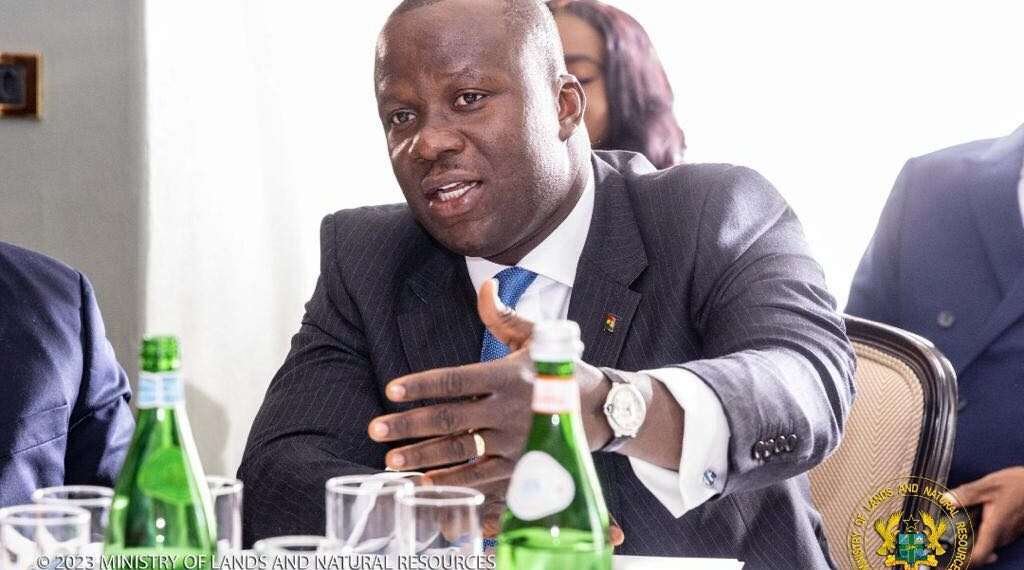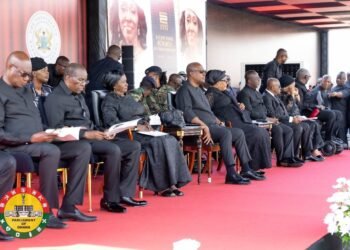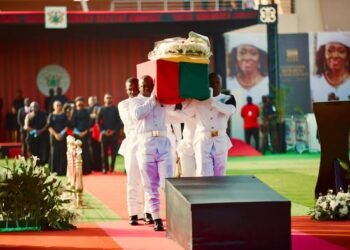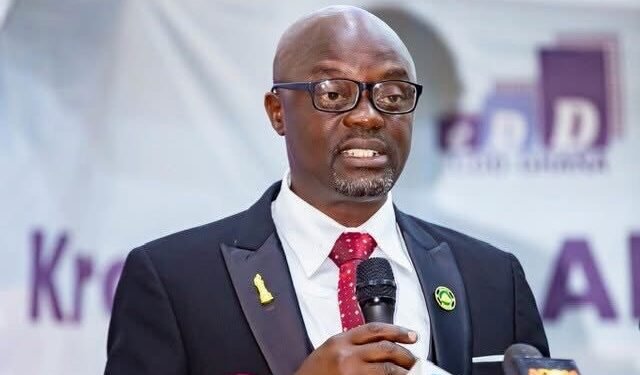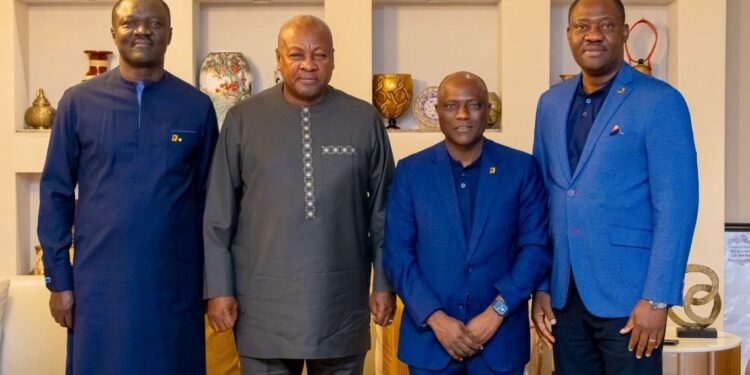Minister for Lands and Natural Resources, Samuel A. Jinapor, has revealed that forest and nature-based solutions have proven to be very impactful and verifiable.
According to him, Ghana as a respected member of the international community, remains committed to working with all partnership to deliver Forest and nature-based climate solutions to achieve the 1.5 degrees Celsius target for people and planet.
The Minister made this commitment when he joined Secretary John Kerry of the US, in the capacity as co-Chairs of the Forest and Climate Leaders’ Partnership (FCLP), on the sidelines of the World Economic Forum, in Davos, Switzerland.
Together with Secretary John Kerry, the Lands Minister held two separate meetings with Brazil and the Democratic Republic of Congo (DRC), to find ways of working together to achieve the ambitious objective of the FCLP to halt and reverse forest loss and land degradation by 2030, whilst delivering sustainable development and promoting an inclusive rural transformation.
The Minister indicated that the meetings were very fruitful, emphasizing that they are encouraged by the commitment of the IBC to work with the FCLP to achieve its objectives. He also noted that achieving this high ambition of the FCLP, requires that the teams work closely with these major forest countries.
Together with Indonesia, Brazil and DRC, the lands minister noted that they have formed the Indonesia-Brazil-Congo (IBC) rainforest alliance, to protect their forests. He reckoned that together, these three countries control over fifty percent (50%) of global tropical forests and are crucial to global efforts at halting deforestation.
Mr Jinapor made a clarion call for all efforts to be marshalled to fight climate change. He noted that achieving the high ambition of the FCLP requires that we work closely with these major forest countries.
The lands minister explained that the meetings were very fruitful, and members are encouraged by the commitment of the IBC to work with the FCLP to achieve its objectives.
“The climate crisis is reaching a tipping point and requires all hands-on-deck approach to come to grips with this crisis.”
Samuel Abu Jinapor
Commitment to fighting climate change globally
The delegation from Brazil was led by the Minister for Environment and Climate Change, Hon. Marina Silva, and the DRC delegation was led by the Vice Prime Minister and Minister for Environment, Hon. Eve Bazaiba Masudi.
The Amazon Rainforest is said to be the largest tropical rainforest in the world, and some sixty percent (60%) of this tropical rainforest is found in the territories of Brazil. The Congo Basin is the second largest rainforest in the world, and about sixty percent (60%) of this is found in DRC’s territory.
The climate crisis is reaching a tipping point and requires all hands-on-deck approach to come to grips with this crisis.
Due to this, COP27 world leaders launched the Forests and Climate Leaders’ Partnership (FCLP) in November last year, committing to halt and reverse forest loss and land degradation by 2030 in the fight against climate change and as promised in the Glasgow Climate Pact.
The FCLP, launched at the inaugural Forest and Climate Leaders’ Summit, is a voluntary partnership of 26 countries committed to delivery, accountability and innovation following the Glasgow Leaders’ Declaration on Forests and Land Use, which was endorsed by more than 140 world leaders at COP26 in 2021 to halt and reverse forest loss and land degradation this decade. If achieved, this would deliver 10% of the climate mitigation action needed by 2030 to deliver on the Paris Agreement.
Chaired by the United States and Ghana, FCLP members represent a range of regions, major forest areas, and centres of commerce and finance. 60% of global GDP and over 33% the world’s forests are covered in this partnership.
All members of the FCLP are united by a common goal; each member must be committed to leading on at least one of the FCLP’s action areas. Through the FCLP, countries will lead the initiatives which will scale and drive delivery. The goal is to identify strategic areas where the FCLP can help implement or scale up both new and existing solutions, working closely with the private sector, civil society and community leaders.
READ ALSO: IES Calls Out PURC On Variables In Establishing New Electricity Tariff

